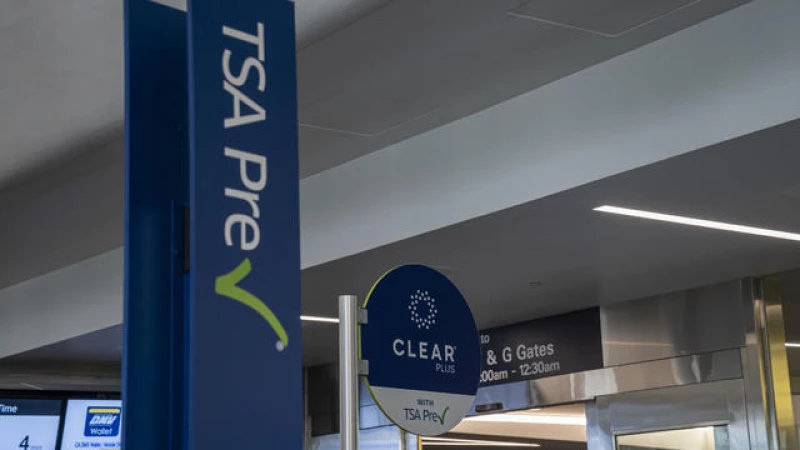In a groundbreaking move, a new bill is being proposed in California that would prohibit security screening company Clear from operating at state airports. The legislation is aimed at companies that offer services allowing individuals to pay for expedited security screening, bypassing other travelers in the process.
Sen. Josh Newman, a California Democrat and the driving force behind the bill, has raised concerns about the implications of Clear's services. He argues that by allowing wealthier individuals to skip ahead in security lines, the company is creating an inequality among passengers waiting to be screened by Transportation Security Administration (TSA) agents.
"It's a matter of fairness to see individuals who are part of a concierge service being ushered to the front of the line while others have patiently waited their turn to go through TSA screening," Newman expressed to CBS MoneyWatch. "The travel experience can be taxing for everyone, and having Clear prioritize a customer over you and essentially tell TSA, 'Sorry, this person is more important,' can be incredibly frustrating."
"It's about dignity"
However, facing opposition from major airlines such as Alaska Airlines, Delta Air Lines, JetBlue, and United, a new bill in California is set to be reviewed by the State Senate's transportation committee on Tuesday. These airlines argue that the bill could limit how airports handle security lines, potentially leading to a decline in passenger experience and negative impacts on business.
Notably, Delta, United, and Alaska all have partnerships with Clear, adding another layer of complexity to the situation.
Despite the challenges, the bill's sponsor, Senator Josh Newman, remains resolute in his goal to enhance the overall travel experience for the majority of passengers.
"This is about ensuring a sense of dignity in travel for those who cannot afford premium services," Newman emphasized. "While those who can afford it are welcome to do so, it should not come at the expense of the average traveler."







